16 of history's greatest philosophers reveal the secret to happiness
"There is no path to happiness: happiness is the path" — Gautama Buddha, alive around 500 BC.

"Of all forms of caution, caution in love is perhaps the most fatal to true happiness" — Bertrand Russell, lived in early 1800s.
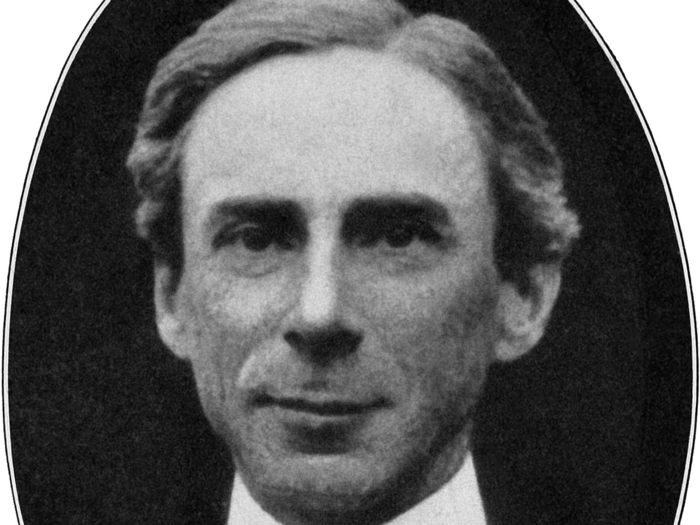
It's out of character for someone like Bertrand Russell, a lover of mathematics, science, and logic, to dabble in something so negotiable as happiness.
But his idea that happiness can be found in the surrender to visceral feelings of love rings true — and contemporary science seems to be on his side.
"Happiness is the feeling that power increases — that resistance is being overcome" — Friedrich Nietzsche, alive in late-19th century.
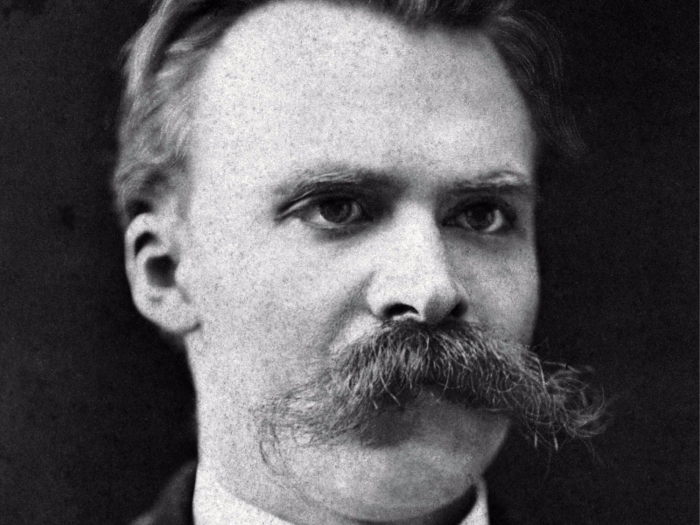
For Nietzsche, the famous mustachioed nihilist, happiness is a kind of control one has over their surroundings.
The German philosopher wrote frequently on the impacts that power (and a lack of power) can have on people's lived experiences. When people resist, they take back their agency. That sense of self can then turn into happiness.
"The secret of happiness, you see, is not found in seeking more, but in developing the capacity to enjoy less" — Socrates, lived in 450 BC.
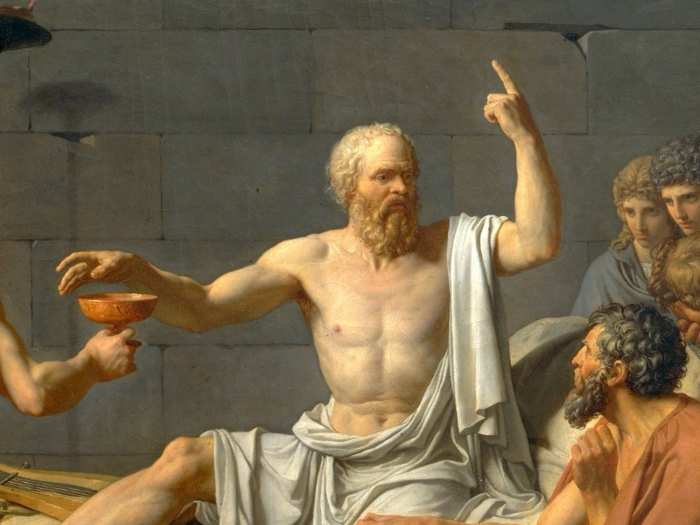
For Socrates, one of the greatest ancient thinkers, happiness doesn't come from external rewards or accolades. It comes from the private, internal success people bestow upon themselves.
By paring down our needs, we can learn to appreciate simpler pleasures.
"The man who makes everything that leads to happiness depends upon himself, and not upon other men, has adopted the very best plan for living happily" — Plato, lived in 4th century BC.
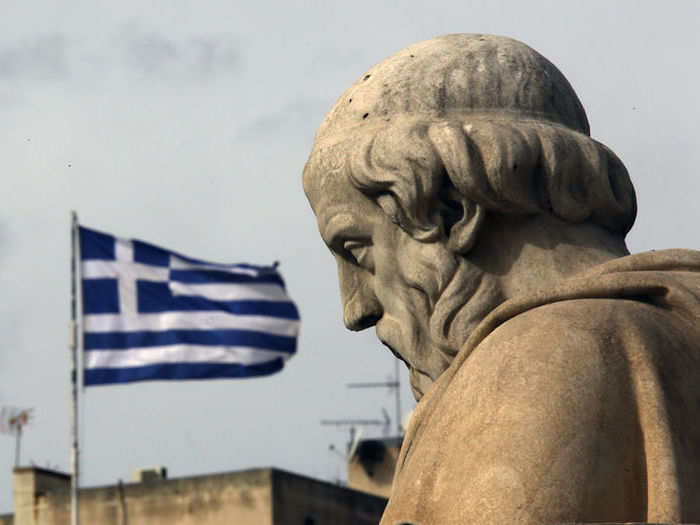
It's no surprise that Plato, Socrates' student, defines happiness like his teacher.
Plato's version of happiness is a form of personal growth. It's deriving satisfaction from achievements — running a faster mile, reading more books than last year — not for what those accomplishments can earn you.
"Happiness depends upon ourselves" — Aristotle, alive in Ancient Greece around 300 BC.
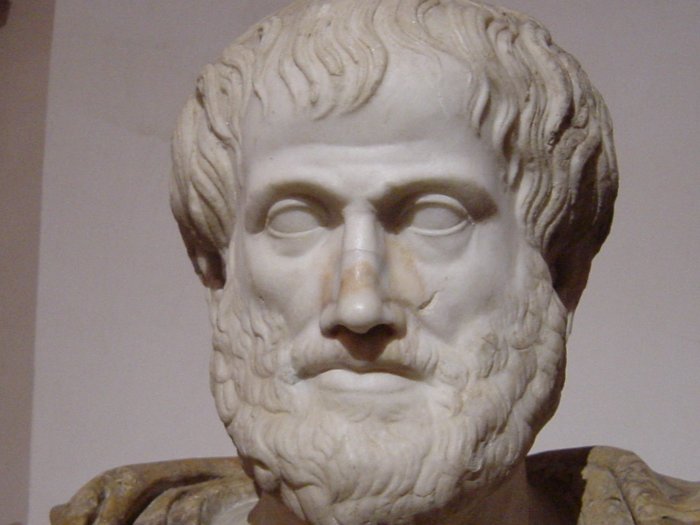
By the time the message got to Aristotle, Plato's student, the idea of happiness had solidified into something we nurture on our own.
It's not a gift other people or things give to us, in other words. It's something we create from within and have a responsibility to protect.
"I have learned to seek my happiness by limiting my desires, rather than in attempting to satisfy them" — John Stuart Mill, born in 1806.
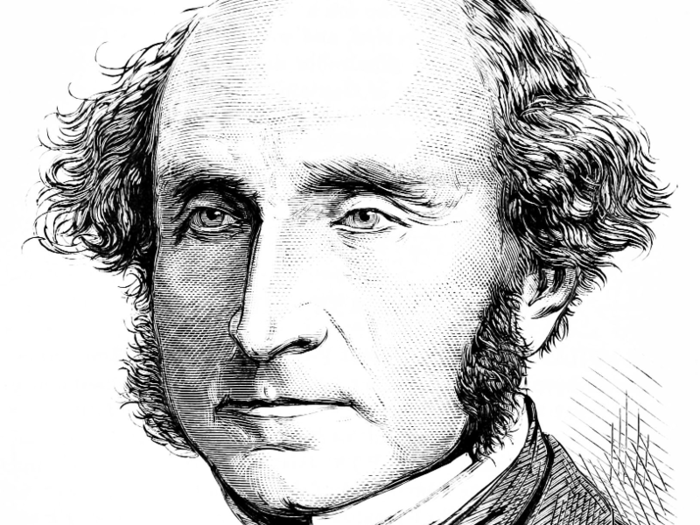
John Stuart Mill was a titan of liberalism, perhaps its most important figure in history. He spread the gospel of liberty wherever he could.
When it came to happiness, he adopted the wisdom of the ancient Greeks. Instead of inundating his life with goods, Mill believed in utilitarianism. He believed in using things for a purpose, and if they served no purpose, he banished them from his life.
"The more man meditates upon good thoughts, the better will be his world and the world at large" — Confucius, lived in China around 500 BC.
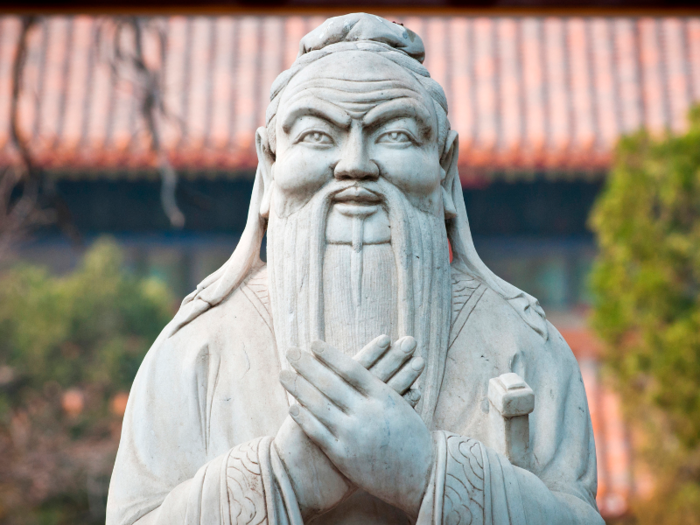
Confucius' sentiment about happiness has echoed through history in books such as "The Power of Positive Thinking" and recent research in cognitive behavioral therapy, which seeks to help people see the connections between their thoughts, feelings, and behaviors.
According to a Confucian mindset, happiness is a self-fulfilling prophecy that replicates itself the more we find reasons for its existence.
"The greatest blessings of mankind are within us and within our reach. A wise man is content with his lot, whatever it may be, without wishing for what he has not" — Seneca, born in Hispania in 4 BC.
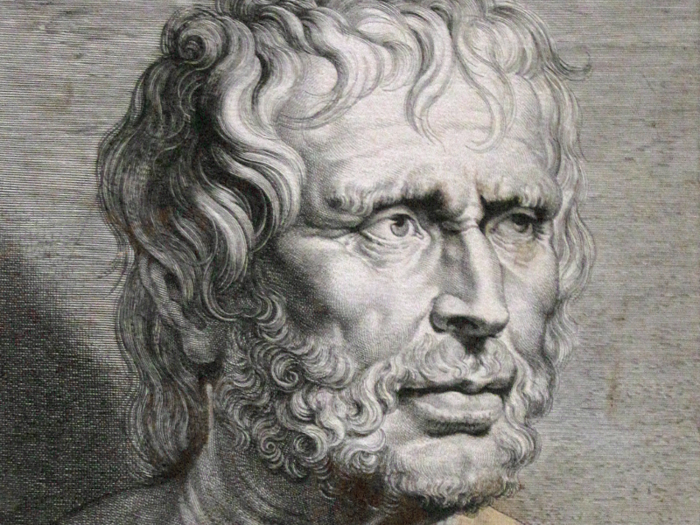
Beloved by contemporary philosophy nerds like the investor Nassim Taleb and marketing whiz Ryan Holiday, the Stoic philosopher firmly believed in what psychologists would now call the "locus of control."
For some people, the locus lives externally. They feel like outside forces guide their actions. For others (in Seneca's mind, the happy ones), the locus lives within.
"If you are depressed you are living in the past. If you are anxious you are living in the future. If you are at peace you are living in the present" — Lao Tzu, alive around 600 BC in China.
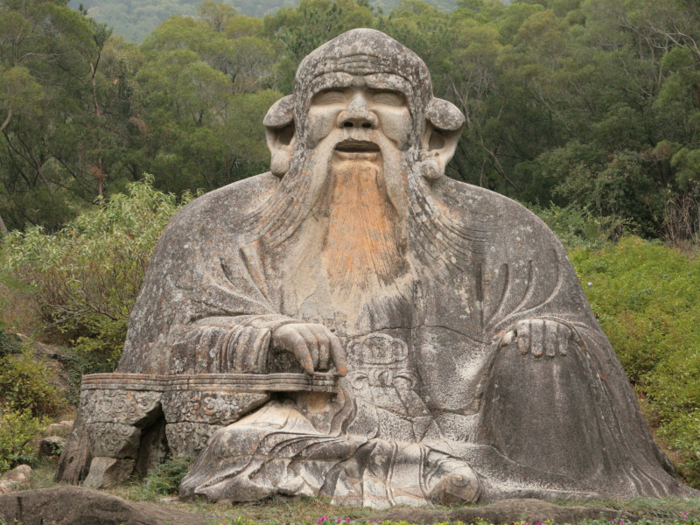
Translated simply as "Old Man," nobody is quite sure who Lao Tzu really was. But the figure's wisdom on living in the moment has transcended millennia.
And psychologists uphold its benefits.
Some research suggests people report the greatest happiness when they are engaged in things that require their full and present attention: good conversation, creative tasks, or sex.
"The myriad things are complete in us. There is no greater joy than to reflect on ourselves and become sincere." — Mencius, Chinese philosopher alive around 350 BC.
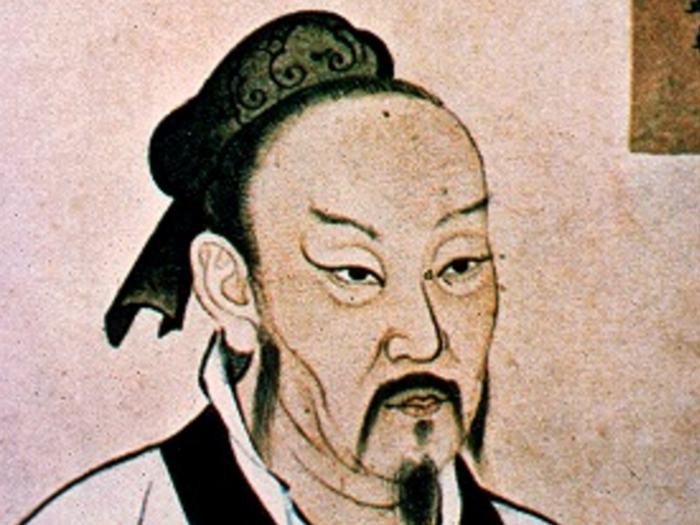
The most famous Confucian thinker aside from Confucius himself, Mencius believed that humans are naturally good-natured and can become more personally fulfilled through education and self-discipline.
However, he also believed people have the power to ruin their potential. The difference may simply come down to people's decision to cultivate joy from within.
"Life is not a problem to be solved but a reality to be experienced" — Soren Kierkegaard, early 19th-century philosopher.
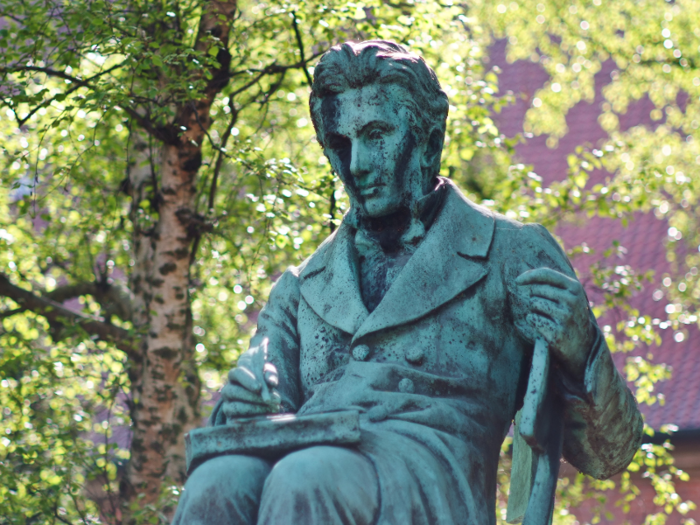
Before there was the stellar mash-up Twitter account Kim Kierkegaardashian, there was the Danish philosopher who inspired it.
Kierkegaard was of the mind that happiness comes from being present in the moment and enjoying the ride. Once we stop turning our circumstances into problems and start thinking of them as experiences, we can derive satisfaction from them.
"Happiness is like a butterfly; the more you chase it, the more it will elude you, but if you turn your attention to other things, it will come and sit softly on your shoulder" — Henry David Thoreau, born in 1817 in Massachusetts.
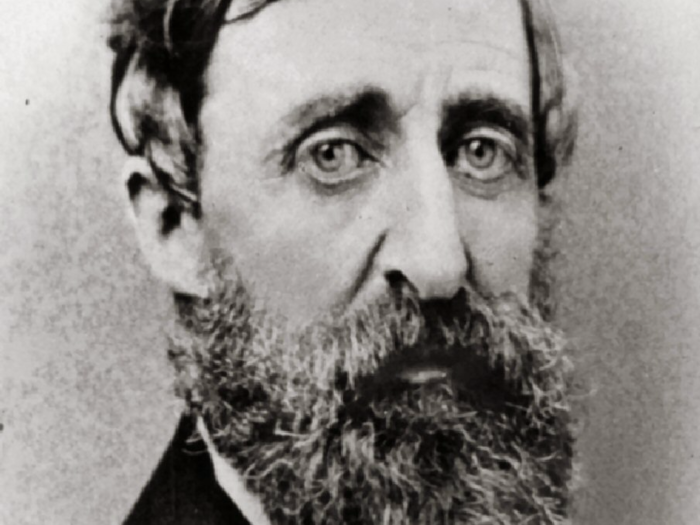
Perhaps unsurprisingly, the transcendentalist author and advocate for civil disobedience took a passive approach to happiness.
As he detailed in "Walden," Thoreau preferred to break convention. He avoided habit. Perhaps through the commitment to randomness, he thought, he could find some larger, more cosmic sense of happiness.
The idea aligns nicely with other thinkers' message to live in the moment.
"You will never be happy if you continue to search for what happiness consists of. You will never live if you are looking for the meaning of life." — Albert Camus, born 1913.

The French philosopher takes a different approach to happiness compared to Socrates' theory that the unexamined life is not worth living.
For Camus, an absurdist, happiness was a pretty bleak life goal. He instead preferred to live meaningfully in the moment and not dwell too much on long-term pursuits, as reflected in his most famous work "The Myth of Sisyphus."
"By pleasure we mean the absence of pain in the body and trouble in the soul. ... It is ... sober reasoning, searching out the grounds of choice and avoidance, and banishing those beliefs that lead to the tumult of the soul." — Epicurus, 341 B.C.
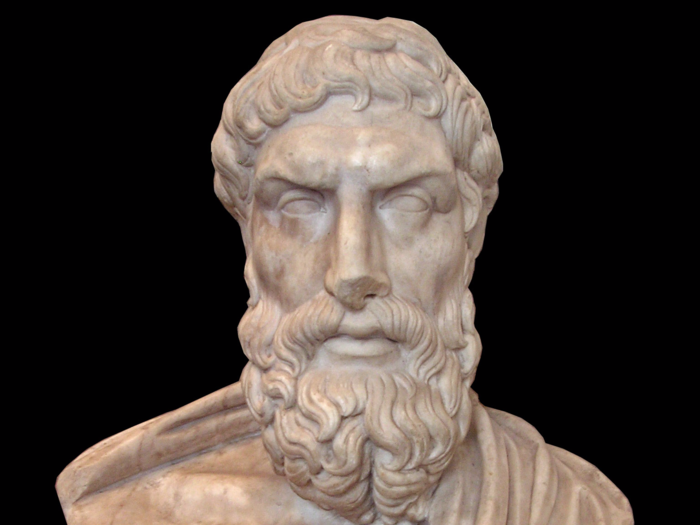
Around the time Aristotle and Plato were dropping their knowledge bombs, Epicurus was also sharing his thoughts on how to live the happy life. Material pleasures held little importance for him; rather, he advocated the pursuit of wisdom as a way to profound joy.
An important ingredient for Epicurus in all this was friendship. He believed shared wisdom was stronger and more valuable than being a wise loner.
"Self-knowledge is no guarantee of happiness, but it is on the side of happiness and can supply the courage to fight for it." — Simone de Beauvoir, born 1908.
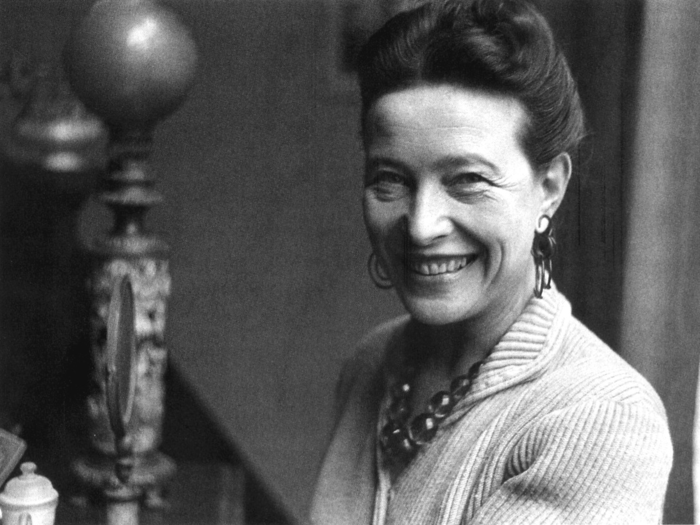
A feminist, novelist, and political philosopher, de Beauvoir married much of her existential beliefs with those of her political ones.
She sought happiness in notions of "freedom," particularly as women struggled to distinguish themselves as individuals, not second-class citizens to men. Her famous book "The Second Sex" addresses such frustrations.
Popular Right Now
Popular Keywords
- India’s wearables market decline
- Vivo V40 Pro vs OnePlus 12R
- Nothing Phone (2a) Plus vs OnePlus Nord 4
- Upcoming smartphones launching in August
- Nothing Phone (2a) review
- Current Location in Google
- Hide Whatsapp Messages
- Phone is hacked or not
- Whatsapp Deleted Messages
- Download photos from Whatsapp
- Instagram Messages
- How to lock facebook profile
- Android 14
- Unfollowed on Instagram
Advertisement